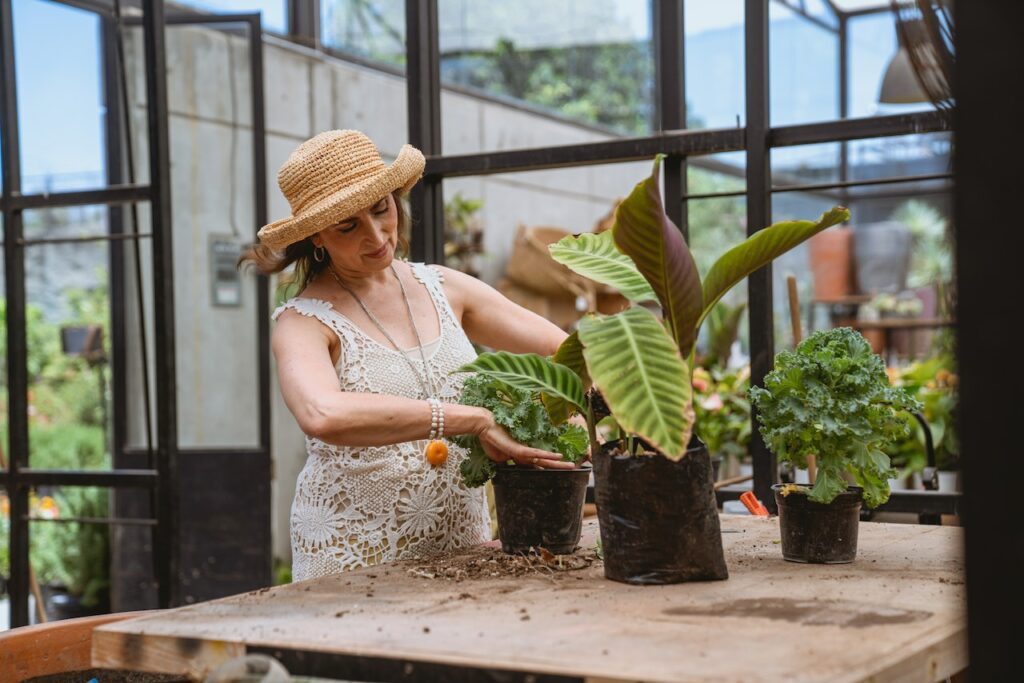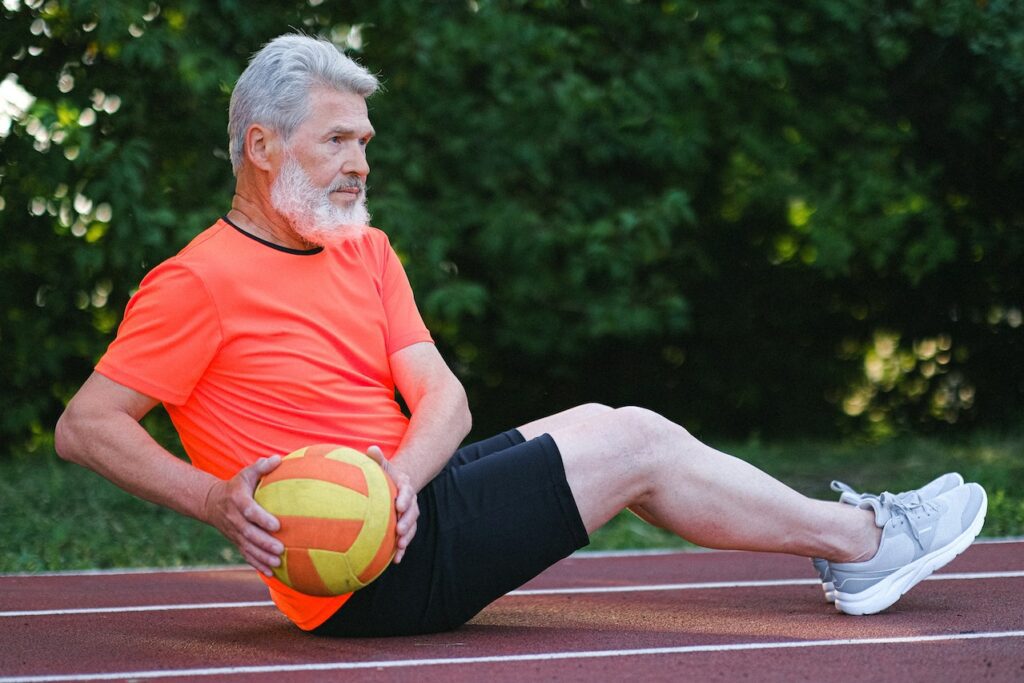Retiring changes everything. Freedom, less duties, and leisure open up after a lifetime of regularity. It’s time to relax, pursue hobbies, and enjoy decades of hard work. Though exhilarating, this new experience might put mental health at risk. This new stage of life involves financial preparedness and mental health awareness.Retirement may be emotional. Some find joy in long-awaited ambitions and new interests. Others may sense emptiness, aimlessness, or loss of identity after leaving their jobs. Unmanaged, this emotional roller coaster may cause tension, worry, and despair. Thus, mental health requires acknowledging these sentiments and taking action.
Maintaining a lifestyle that fosters emotional and cognitive well-being in retirement prioritizes mental health. It’s about finding pleasure, remaining connected, keeping your mind sharp, and living a long, meaningful life. Remember that everyone’s retirement path is different. Therefore, customize these instructions to your needs.
This quest isn’t as scary as it seems, trust me! In fact, you can create a mental health-focused retirement with the correct information and resources. After all, retirement involves more than simply finishing a job. Let’s take these 11 simple actions to guarantee your mental health is cared for in your senior years.

Regular Exercise
Maintaining health in our older years requires regular physical exercise. Its benefits extend beyond physical health to emotional well-being. Regular exercise improves mood, sleep, cognitive performance, and depression and anxiety symptoms. In retirement, it gives a fun routine, socialization, and self-esteem boosts, making it a great tool for mental health.
Hikes and outdoor excursions are enticing ways to get regular exercise. This mixes nature therapy with exercise. Walking paths and breathing fresh air strengthens your muscles and heart and gives you a feeling of serenity and quiet that nature delivers. It’s a chance to unplug and reconnect with nature. Green exercise, whether a leisurely walk in a park or a strenuous trek in the hills, may improve mental health.
Swimming and water aerobics are great ways to stay active. These engaging, joint-friendly workouts are excellent for seniors. Water also makes these exercises more contemplative. While swimming or doing aerobics, you’re also reducing tension.
Low-impact workouts may also help. Yoga, Pilates, and Tai Chi improve flexibility, balance, and strength while reducing joint tension. Low-impact activities with mindfulness are great for mental and physical wellness.
Retirement mental health benefits from regular exercise. Regular exercise boosts endorphins, the body’s “feel-good” chemicals, and reduces stress. This hormonal boost promotes happiness and well-being, which is essential throughout retirement.
Additionally, exercise regulates sleep. It improves sleep quality and mental health by balancing your sleep-wake cycle. Sound sleep improves cognitive function, clarity, and mood issues.
Exercise improves cognition. It improves memory and concentration by increasing cerebral blood flow and brain cell proliferation. Maintaining cognitive wellness in retirement prevents cognitive decline and dementia.
Active retirement may increase self-esteem and confidence. Meeting fitness objectives may boost self-esteem and confidence. This is crucial to a happy retirement.
Social Activity
Community and human connection are essential at any age but are more important in retirement. Staying connected is important for mental health once work-life interactions end. Social interaction promotes belonging, stress management, and cognitive performance.
Weekly family meals or game evenings are great ways to stay sociable. These activities improve relationships and make memories. Laughter, love, and emotional support boost mental wellness.
Pen pals and online communities may be gratifying in a digital era. This lets you share experiences, learn new things, and create global friends. It offers doors to new cultures, ideas, and tales, enriching the intellect.
Socializing in retirement improves mental wellness. It decreases post-retirement loneliness and isolation. Social engagement keeps you connected to a helpful network that may provide emotional support and delight at celebrations.
Socializing boosts the intellect. These exercises keep the brain busy and sharp, lowering the risk of cognitive decline.
Finally, a robust social network gives purpose and belonging. Life is more meaningful when shared with others.
YOU MAY ALSO LIKE: Top 9 Best Activities for Seniors to Embrace Newfound Free Time
Mindful Eating
Food affects our mental and emotional wellness too. Mindful eating may improve this element of health after retirement.
Herbal teas may complement this thoughtful living. Aroma, flavor, and health benefits vary with variety. Chamomile tea promotes relaxation and sleep, while peppermint tea aids digestion. Green tea boosts brainpower with antioxidants. These warm, comforting drinks heighten awareness of their health benefits.
This mindful practice includes knowing food’s origins. For example, fresh vegetables at farmer’s markets have various benefits. They promote community connection and food enjoyment from farm to table. Fresh produce also provides brain-boosting nutrients.
Mindful eating improves retiree mental health. Savoring meals improves mental health and eating habits. Mindfulness also reduces stress and anxiety. It promotes mindful eating. Focusing on the current moment may be contemplative and provide mental clarity.
Finally, mindful eating improves brain health by encouraging healthy eating. A balanced diet of fruits, vegetables, lean meats, and whole grains provides essential nutrients for cognitive performance and mood control.
Enough Rest
This is a great time to restore a healthy sleep schedule without early-morning meetings or late-night business crises. Establishing a consistent sleep regimen with relaxing pre-bedtime activities might assist the body’s shift from daytime activity to nighttime rest.
Science supports unwinding before bed. Reading, listening to quiet music, or doing mild yoga helps drop heart rate and blood pressure, replicating the body’s normal fall before sleep. A JAMA Internal Medicine research revealed that pre-bedtime contemplative exercises like yoga or meditation might enhance sleep quality, particularly for insomniacs.
White noise and aromatherapy are additional sleep-enhancing methods. White noise hides environmental noise with a constant, ambient sound. Famously noise-sensitive hospital patients slept better with white noise, according to a Journal of Caring Sciences research. These results may help retirees use white noise devices to sleep better and longer.
Aromatherapy, especially with lavender, may help you sleep. According to a Journal of Alternative and Complementary Medicine research, lavender lowers heart rate and blood pressure, promoting sleep. Retirees may relax and sleep better with aromatherapy.
Mental wellness depends on sleep. Sleep cleanses the brain, consolidates memories, and prepares for the following day. Deep sleep modulates cortisol, a stress hormone. With excellent sleep, retirees may retain cognitive performance, emotional equilibrium, and mental well-being.
Psychological Stimulation
Work-free time allows for intellectual and cognitive stimulation. Let’s explore how cognitive engagement promotes mental wellness.
First, exciting activities improve cognition. “Use it or lose it,” the mind lives on involvement. Reading and playing board games keep the brain engaged and sharp. These activities strengthen the intellect and prevent cognitive deterioration.
Second, mental stimulation may postpone dementia, according to a New England Journal of Medicine study. Complex board games may enhance the brain, preserving memory and thinking abilities and protecting against dementia.
Mental stimulation improves memory. Recalling game rules or book plots exercises the brain’s memory processes. Consistent interaction improves memory retention and recall, keeping the mind sharp.
Mental stimulation typically facilitates social engagement. These social interactions boost mood and reduce loneliness, whether it’s a spirited chat about a news piece or a friendly board game tournament. These activities build community, which is essential to mental wellness.
Finally, frequent mental stimulation gives retirees meaning. Engaging in an activity, learning something new, or anticipating a game night offers delight, contentment, and anticipation. This fresh purpose boosts mental health and enriches retirement.
Reading, board games, and cultural events may improve mental health too, all while keeping your heart happy!
Brain stimulation may postpone dementia. Board games may protect elders against dementia, according to a New England Journal of Medicine research. Moreover, mental activity, particularly memory games, may improve memory retention. Better remembering improves cognitive health.
Promoting sociable Interaction: Board games and cultural events are sociable. This engagement may improve mood, combat loneliness, and build community.
Mental stimulation may also provide retirees with a feeling of purpose. Retirees’ mental health might improve with regular activities.
Adopt New Tech
Technology has created many tools and resources that may improve our lives, especially in retirement. This revolution includes health-monitoring wearables. Smartwatches and fitness trackers measure physical activity and essential health factors, including heart rate, sleep patterns, and blood oxygen levels.
Understanding and using such technologies helps retirees. For one, it gives a real-time, full health assessment, allowing lifestyle choices. It may avoid health problems by warning the user. It enables retirees to manage their health, boosting confidence and reducing health worries.
Retirees may also use digital material like audiobooks and podcasts. These platforms provide unique information and entertainment consumption. Audiobooks are ideal for people with eyesight issues or who wish to relax. It permits reading while walking or gardening.
Podcasts include history, science, music, and humor. They stimulate the mind, keep retirees engaged, and present new ideas. The voice in audiobooks and podcasts may also alleviate loneliness.
Many technological technologies may help retirees maintain mental wellness. Five technologies may assist retirees.
Wearable Health Devices: Smartwatches and fitness trackers may measure heart rate, sleep, step count, and stress. By tracking these data, retirees may better understand their health and make healthier lifestyle choices. Physical health also affects mental wellness.
Digital Reading and Listening Platforms: Audiobooks and podcasts are peaceful ways to learn and amuse. They relieve loneliness and stimulate the mind. Audible and Spotify provide many audiobooks and podcasts for every interest.
VR: Not only for kids. Senior VR experiences exist. These immersive experiences may stimulate and entertain.
Coursera, Khan Academy, and MasterClass provide varied courses online. These systems provide lifelong learning and brain stimulation. Learning keeps your brain healthy.
Social Media and Communication Apps: Facebook, WhatsApp, and Skype let retirees remain in touch with family and friends. They enable learning, sharing, and engagement. Regular social connection may reduce loneliness and boost mental health.

Take Up Passion Projects
Without employment obligations, one may pursue their hobbies. Passion projects may improve mental health.
Seniors may share their views, experiences, and advice via a memoir or blog. Writing stimulates the mind, helps process emotions, and boosts self-esteem. It imparts wisdom to future generations.
Musicians might enjoy learning new instruments. Playing an instrument improves memory and focus. It may also provide personal fulfillment and emotional release. Retirement is the best opportunity to pick up a pastime you abandoned owing to job or family obligations. Hobbying may boost mood and provide meaning.
Traveling or immersing oneself in other cultures may also enhance one. It breaks the monotony, sparks interest, and teaches. Traveling and meeting new people may promote cognitive flexibility and emotional well-being.
Five culturally distinctive sites are:
Retirees may enrich their thoughts and lives by traveling. Five culturally distinctive sites are:
- Japan: Kyoto’s historic temples and tea rituals contrast Tokyo’s contemporary metropolis life. Retirees love Japan because of its regard for nature and the elderly.
- Italy provides a unique cultural experience with its rich history, breathtaking architecture, and world-class food. Rome, Florence, and Venice provide historical sites, while Tuscany showcases Italian rural life.
- India: A rich cultural fabric of languages, faiths, and customs. India offers a rich cultural experience, from Rajasthan’s regal castles to Kerala’s peaceful backwaters to Holi and Diwali.
- Mexico: From Mayan ruins to Day of the Dead celebrations, Mexico has a rich cultural past. The native food, culture, and music are vibrant, while coastal cities like Cancun and Tulum provide beach relaxation.
- Greece: Ancient history and mythology make Greece a time machine. Explore Athens’ ancient ruins, tour Santorini’s white-washed towns, or have a Greek feast.
Conclusion
Physical exercise, social connection, mindful eating, rest, cognitive stimulation, technology involvement, and interests are all needed to preserve mental health in retirement.
Regular exercise boosts endorphins and general wellness. Social involvement helps seniors remain connected, share experiences, and feel like they belong, which benefits mental health.
Mindful eating helps the body and mind. It promotes mindful eating for physical and mental well-being. A consistent sleep regimen also rejuvenates the mind and body, improving mental clarity and emotional stability.
Reading, puzzles, and new abilities keep the mind sharp. It gives retirees meaning and fulfillment. Health monitoring gadgets and digital learning platforms may help preserve physical health, engage the mind, and build relationships.
Finally, retirement passion projects provide self-expression and progress. It gives retirees the freedom to pursue your passion, and you deserve that kind of happiness in your life!














